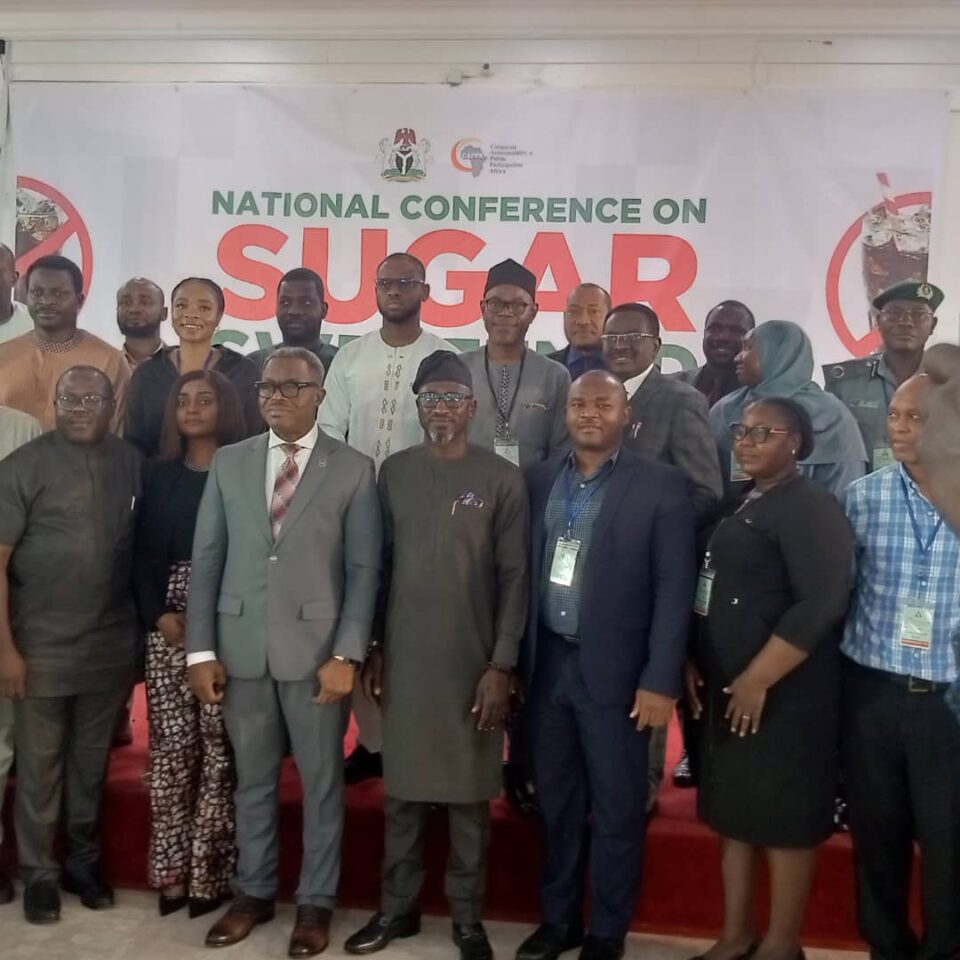The coordinating Minister of Health and Social Welfare, Dr Muhammad Ali Pate, on Wednesday, stated that the sustenance of taxation on all Sugar-Sweetened Beverages, SSBs, will reduce its consumption and therefore reduce the burden of Non Communicable Diseases (NCDs).
The Minister who was represented by the Director of Public Health of the Ministry, Dr Chikwuma Anyaike, made this assurance in a welcome address at the national conference on sugar-sweetened beverages tax, themed: “Towards Sustainable Pathway For Pro-Health Tax in Nigeria”, organized by the Ministry of Health, in collaboration with Corporate Accountability Public Participation Africa (CAPPA).
The Nigerian Government currently charges a N10 per litre tax on SSBs. The beverages under the category, are a major risk factor for Noncommunicable Diseases (NCDs).
Pate expressed worries that the current tax was not sufficient to mitigate the burden of NCDs in Nigeria, especially as the country is one of the countries with 77% of the global 41 million annual deaths caused by NCDs.
Pate assured of the federal government’s commitment to ensuring that Nigeria meets the best global standard of at least 20% tax on the final retail price of all Sugar-Sweetened beverages, SSBs.
He said, “The World Health Organization (WHO) advises that limiting the intake of sugar-containing drinks can help individuals maintain healthy weight and healthy dietary pattern (WHO 2020).
“NCDs continue to remain the leading cause of death in Sub Saharan Africa. The World Health Organisation Assembly has endorsed a package of 16 evidence-based interventions focusing on addressing NCD Risk Factors (SSB, tobacco, harmful use of alcohol, physical inactivity, unhealthy diet). One of the interventions is the use of taxes on products that have a negative public health impact with the explicit goal of reducing consumption of such products. These taxes are considered to have the potential to reduce NCDs while advancing health equity.
“Taxation on SSB has shown effective reduction on its consumption in countries where it is in force. The introduction and sustenance of SSB tax in Nigeria will reduce excess consumption of SSBs and thus reduce the burden of NCDs. We are committed to attain the global best practice as recommended by the World Health Organisation of at least 20% of the final retail price on all SSBS as the current 10 naira per litre price fails to achieve this.”
He said the commitment aligns with other government efforts in improving the public health of the Nigerian populace, to meet the global priority of significantly reducing premature deaths due to NCDs.
He noted that excess consumption of Sugar-sweetened beverages has become a significant public health concern and a threat to the future generation as its consumption is high among children and adolescents. “Numerous studies have linked high consumption of SSB to an increased risk of tooth decay and cavities, weight gain, obesity, type 2 diabetes, cardiovascular diseases, chronic obstructive pulmonary disease, cancer and other NCDs.”
The Coordinating Minister said that WHO’s global death rate was duly captured in Nigeria’s Multisectoral Action Plan (NMSAP) for ending NCDs, under the purview of the Non-Communicable Diseases Division of the Federal Ministry of Health.
“However, the Federal Government is very much committed to providing leadership for the implementation of the SSB tax in our country Nigeria as part of strategies for the prevention and control of Non-Communicable Diseases through the Federal Ministry of Health, partners and various stakeholders by strategically addressing risk factors associated with NCDs and improving the management of these diseases as well as preventing their complications.”
He therefore urged stakeholders to focus on policy coherent decisions, as that would form a resistance against the lobbying position and attack of the SSB industry.
Earlier in his welcome address, the Executive Director of CAPPA, Mr Akinbode Oluwafemi, said the theme of the conference reflects the pressing need for policymakers to immediately put together a policy framework that considers Nigeria’s priorities in revamping the nation’s health system.
Oluwafemi said more than 30% of all deaths in Nigeria are linked to Non-Communicable Diseases.
“This is alarming. According to a World Health Organisation’s (WHO) report, the risk of premature death from cardiovascular diseases (CVDs), cancers, respiratory diseases, and diabetes among Nigerians aged 30 to 69-year-olds is 22%,” he added.
He therefore urged government not to be wary of the SSB industry and their allies “as they continue to predict doom for the economy using these false narratives to curry sympathy from the same public they have undermined their well-being in favour of profit.”
He urged the government to retain the SSB tax in the next fiscal policy and increase it to at least N50, while working with all stakeholders to find the most effective minimum tax rate that will help the government in achieving its goal.
He also tasked the government to increase the scope of the SSB tax to include all products that fall within the category without emotions.
On his part, the Chairman of House Committee on Health Institutions, House of Representatives, Hon. Amos Gwamna Magaji, said the National Assembly has made a commitment to work with all sectors to build Nigeria, and will not relent in the fight against the NCDs.
“The 10th Assembly, as regarding health, is committed to any Legislature that will promote health and the wellbeing of Nigerians, and therefore, we are working with different stakeholders – we just had a retreat on the legislative agenda, last week, and so we’re building on it, capturing different aspects of health; health insurance, health promotion and anything that will promote the health of Nigerians and reduce the burden of health on families, communities.
“The 10th Assembly is committed to ensure that Nigerians get accessible and affordable healthcare,” he said.



